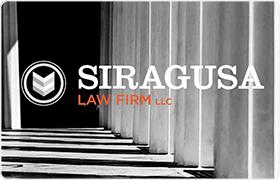Bristol Divorce & Family Law Lawyer, Pennsylvania
Sponsored Law Firm
-
 x
x

Click For More Info:
-
Siragusa Law Firm LLC
678 Route 202/206 Building 5, Suite 5 Bridgewater, NJ 08807» view mapDivorce & Family Law Creative Thinking. Exceptional Results.
At Siragusa Law Firm, we take our responsibility seriously. We are passionate about helping you, making sure to guide you through whatever legal matter you face.
908-218-1100
Karen Ulmer
✓ VERIFIEDDivorce & Family Law, Family Law, Estate, Power of Attorney, Mediation
We are on your side when you are going through Divorce and Custody matters
Karen Ulmer is an attorney licensed to practice in both PA & NJ. Ms. Ulmer founded the law firm in 2001, concentrating her practice in the area of fa... (more)
Martin N. Ghen
Farms, Alimony & Spousal Support, Child Support, Children's Rights
Status: In Good Standing
FREE CONSULTATION
CONTACTRonald V. Mcguckin
Intellectual Property, Employment, Divorce & Family Law, Business
Status: In Good Standing Licensed: 44 Years
Diane C. Mellott
Divorce & Family Law, Estate, Family Law, Divorce
Status: In Good Standing Licensed: 20 Years
Arsen Kashkashian
Bankruptcy & Debt, Divorce & Family Law, Criminal, Felony
Status: In Good Standing Licensed: 61 Years
Donald Williford
Bankruptcy, DUI-DWI, Family Law, Litigation, Wills & Probate
Status: In Good Standing
FREE CONSULTATION
CONTACT Lynette Siragusa Bridgewater, NJ
Lynette Siragusa Bridgewater, NJ Practice AreasExpertise
Practice AreasExpertise

